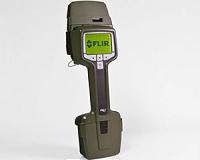| . |  |
. |
Algiers, Algeria (UPI) May 23, 2011 Amid fears al-Qaida is seeking to exploit the political turmoil sweeping the Arab world, North African states led by Algeria are discussing a joint task force with as many as 75,000 troops to fight the jihadists' regional affiliate across the Sahara Desert. Algeria, the regional military heavyweight, will shortly host a meeting in Algiers of military chiefs from African states that may also be attended by Western countries, including the United States and the European Union. "The challenges we face require more focused planning and effective coordination," declared Algeria's delegate, Abdel Kader Messahel. "It falls on us to evaluate dangerous developments and the new dimensions the terrorist threat is taking." Al-Qaida in the Islamic Maghreb, one of the most active of al-Qaida's affiliates, operates across the ungoverned wastes of the Sahara and the semi-arid Sahel region that stretches from northeastern Mauritania to the northern portions of Mali, Niger and Burkina Faso. The group is led by Algerian jihadists, veterans of two decades of fighting the Algiers government. With an estimated 500 fighters, AQIM has a northern wing based in the mountains in the east of the Mediterranean country, commanded by the overall jihadist leader, Abdel Malik Droukdel. The southern wing is split in two. One group, with 100-150 fighters, is led by Mokhtar Belmokhtar, a 20-year jihad veteran dubbed "the uncatchable" by French intelligence and who is gaining influence among the Bedouin tribes across the region. The other group, with about the same strength, is headed by Hamdi Essouffi, also known as Abdelhamid Abu Zeid, whom intelligence officials say is locked in a "vicious rivalry" with Belmokhtar. Belmokhtar's force is better known for its criminal enterprises -- he's known as "Mr. Marlboro" for his lucrative cigarette-smuggling operations -- and his kidnappings for ransom than for any ideological zealotry. His victims since 2006 have included scores of Europeans. One, 78-year-old French captive Michel Germaneau, was beheaded after a bungled rescue attempt by French and Mauritanian commandos in July 2010. French President Nicolas Sarkozy declared war on AQIM and has deployed commandos and air units in the region where the jihadists hold four French hostages seized in Niger in September 2010 and an Italian taken in southern Algeria in February. The French, who once ruled 19 colonies in an African empire broken up in the 1960s, have forces deployed across the region and constitute the main European military presence in the counter-terrorism campaign. The Americans have been taking a growing interest in AQIM and have built up cooperation with the Algerians in recent years. Even so, Messahel made it clear that Algiers wasn't planning to invite the Americans, and certainly not the French, the former colonial power, to conduct military operations against Islamists in the region. The Algerians, for whom memories of a brutal independence war against the French in 1954-62 remain vivid, have long opposed Western intervention against the Islamist groups. The Americans are more favorably received by Morocco, a longtime ally and another former French colony. Indeed, Intelligence Online, a Paris Web site that specializes in security issues, reported recently the U.S. military appears to be operating long-range surveillance drones from an air base at the small southern town of Guelmim. The planned gathering in Algeria is the latest effort by the regional states to forge a coordinated military-intelligence apparatus to counter AQIM and other Islamist groups. In April 2010, the intelligence chiefs of Algeria, Mali, Niger and Mauritania set up a joint intelligence center at the Algerian airbase at Tamanrasset, deep in the Sahara, to coordinate counter-terrorism operations. But traditional rivalries between the states involved have impeded such efforts. The civil war in Libya, part of the unprecedented political upheaval that erupted in Tunisia in January and subsequently swept the entire Arab world, has apparently given new impetus to these moves. On May 15, two suspected AQIM operatives with suicide belts were arrested in southern Tunisia, which neighbors Libya where the jihadists are suspected of joining rebel forces fighting the beleaguered Libyan leader Moammar Gadhafi. Three days later, Tunisian forces clashed with an al-Qaida unit on the border with Libya. Two militants were killed. AQIM was the prime suspect in the April 28 suicide bombing of a cafe in Marrakesh, Morocco, that killed 14 people and wounded 20.
Share This Article With Planet Earth
Related Links The Long War - Doctrine and Application
 FLIR introduces next gen explosives detection
FLIR introduces next gen explosives detectionPortland OR (SPX) May 19, 2011 FLIR Systems has announced the introduction of the next generation of its industry leading handheld, explosives detector - Fido NXT. The completely redesigned Fido NXT provides expanded explosives detection capabilities in a smaller, more compact, rugged device. The Fido NXT was designed and developed based on the lessons learned from more than 3,000 Fido detectors currently fielded around ... read more |
|
| The content herein, unless otherwise known to be public domain, are Copyright 1995-2010 - SpaceDaily. AFP and UPI Wire Stories are copyright Agence France-Presse and United Press International. ESA Portal Reports are copyright European Space Agency. All NASA sourced material is public domain. Additional copyrights may apply in whole or part to other bona fide parties. Advertising does not imply endorsement,agreement or approval of any opinions, statements or information provided by SpaceDaily on any Web page published or hosted by SpaceDaily. Privacy Statement |